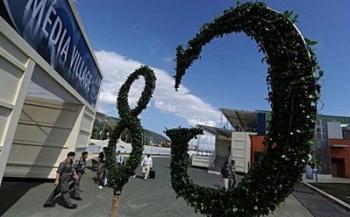With all the spotlights on leaders of the Group of eight industrialized nations will meet with the heads of the world's major developing countries for talks in the central Italian city of L'Aquila this week. What will be on the agenda during the three-day G8 Summit? To what extent will the summit help solve current problems?

From Wednesday to Friday, leaders from the G8 and from the five major developing countries are scheduled to push for common positions on both political and economic issues. The unfolding global financial crisis stands at the center of discussion.
Major western economies have launched their economic stimulus plans, but the immediate benefits have been slight and fiscal pressure continues to mount.
The US and Britain are still emphasizing the need for stimulus. Meanwhile, the European Union members, led by Germany, have called for a more prudent approach to government spending and monetary expansion. Germany says the post-stimulus exit strategy will be discussed at the summit.
Franco Franttini, Italian Foreign Affairs Minister said "Many, many countries in the world have been increasing their public spending in order to combat the crisis and help industrial sectors in need and this is leading to an increase in public debt, which is another source of great concern. So, exit strategies and how to confront the crisis at the same time will be on the table."
Meanwhile, Italy, which is home to both the UN's Food and Agriculture Organization and the World Food Programme, is pushing ahead with strategic grain reserves, even as it calls for investment in new agricultural technologies.
Jacques Diouf, Director-General of UN Food & Agriculture Organization said "This is the first time in the history of humanity that so many people are going to bed hungry, but that we are also addressing the root causes of the problem and the root cause of the problem has been that we have not invested in agriculture."
G8 leaders will also seek a coordinated position on climate change, food security, trade and development, while emerging economies, including Brazil, China, India, Mexico and South Africa, will focus on getting developing countries on board.
Despite its political and economic clout, there is an increasing acknowledgement that the G8 is too narrow for big political and economic decision-making.
The leaders will look ahead to the G20 summit, including developing countries, which is scheduled to be held in September in the US.
(CCTV July 8, 2009)